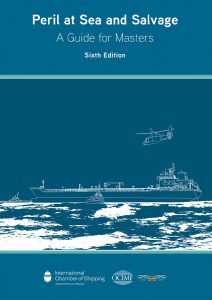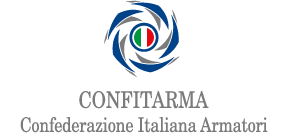 23 October 2020 – Unlike an emergency situation on land, when a ship faces a crisis at sea, Masters cannot simply dial the emergency services for instant assistance. They take responsibility for dealing with the situation, acting decisively to protect lives and prevent or minimise damage to the ship, environment and cargo.
23 October 2020 – Unlike an emergency situation on land, when a ship faces a crisis at sea, Masters cannot simply dial the emergency services for instant assistance. They take responsibility for dealing with the situation, acting decisively to protect lives and prevent or minimise damage to the ship, environment and cargo.
The International Chamber of Shipping (ICS) and the Oil Companies International Marine Forum (OCIMF) have worked in partnership to provide the industry with a practical guide
Peril at Sea and Salvage: A Guide for Masters outlines the actions a Master should take when confronted with an emergency: from the initial assessment and immediate actions, through to towage or salvage arrangements, as may be necessary. It also explains the importance of prompt notification to relevant parties with onshore support, particularly coastal States and the company. A section is included with recommendations for a company’s shore-based personnel.
Guy Platten, Secretary General of the International Chamber of Shipping says: “Over the years we have seen a reduction in shipping emergencies and major incidents due to the development of regulations governing the safe operation and management of ships. Crews are regularly trained in emergency response preparedness and the industry has adopted a compliance culture.
“But, when accidents do occur, they often have a high impact, and of course they threaten the safety of personnel, ships, the environment and cargo. Whilst it is good news that many seafarers have never experienced an emergency on board a ship, it also means that they can lack the anticipatory knowledge needed to deal with an emergency. Peril at Sea has been designed to help provide seafarers – and shore-based personnel – with the decision-making support that they need.”
Peril at Sea contains information on the initial response to an incident, implementing the emergency response plan, updates and follow-up actions, and towage and salvage.
It also focusses on the contingency planning a company needs to undertake to prepare for an emergency. This Guide provides clear guidance on best practices for the Master, but should also be read by anyone who might be involved in managing emergency situations on a ship, including shore-based personnel, emergency assistance service providers and training institutions.
Rob Drysdale, Managing Director of OCIMF, says: “Our industry continues to evolve, and vessels are more sophisticated and technically advanced than ever before. While this has made ships and their operations safer, it has also changed how a ship’s Master responds to a crisis at sea and the level of preparation required. Therefore, it is of paramount importance that personnel both at sea and onshore are armed with the knowledge, resources and tools to manage crises and minimise harm to themselves, their vessel and the environment in any emergency situation.
“Peril at Sea is the definitive guide to preparing for and responding to incidents, accidents and emergencies at sea. Drawing upon experience from across the industry, this updated edition explains the operational and regulatory changes that have taken place since the last edition was published. I urge all Masters, crew and personnel ashore to familiarise themselves with the revised recommendations, safety management systems and emergency response protocols contained within this new edition.”
Peril at Sea and Salvage: A Guide for Masters is published by Witherbys, price £155. For further information please visit https://www.witherbyseamanship.com/peril-at-sea-and-salvage-a-guide-for-masters-sixth-edition.html

